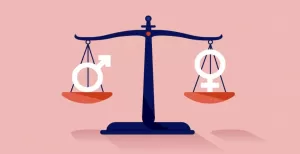Conditions for working people continue to get worse. The right to strike, or to join a union, is denied by increasing numbers of the world’s governments. The 2023 Global Rights Index report issued by the International Trade Union Confederation makes for grim reading, as has consistently been the case for the decade that the ITUC has issued its yearly reports.
Once again, there is no country on Earth that fully protects workers’ rights, the Global Rights Index report informs us. Nothing new here, as this was the case in the 2022 report, and all the reports before that. Neoliberalism does not have a human face.
Noting that “the foundations and pillars of democracy are under attack,” the report opens with a sobering summary:
“Across both high-income and low-income countries, as workers have felt the full force of a cost-of-living crisis, governments have cracked down on their rights to collectively negotiate wage rises and take strike action against employer and government indifference to the impacts of spiralling inflation upon working people. From Eswatini to Myanmar, Peru to France, Iran to Korea, workers’ demands to have their labour rights upheld have been ignored and their dissent has been met with increasingly brutal responses from state forces.”
Living in the Global North does not exempt you from repression. The report, in finding that 87 percent of the world’s countries violated the right to strike, noted that Belgium, Canada and Spain are among the countries in which working people have faced criminal prosecution and dismissals following a decision to strike. In South Korea, Daewoo Shipbuilding & Marine Engineering filed a lawsuit against leaders of the Korea Metal Workers’ Union for alleged financial losses incurred due to a strike, demanding 47 billion won (US$35.3 million).
Nearly as many countries — 79 percent — violated the right to collective bargaining, with workers in the Netherlands, North Macedonia, Montenegro and Serbia reporting collective bargaining rights have been severely reduced. Almost three-quarters of countries — 73 percent — impeded the registration of unions through government legislation, including Canada.
Overall, the ITUC said, “The past 10 years have seen a consistent increase in the violation of workers’ rights across the regions. … The line between autocracies and democracies is blurring and workers are on the frontlines as governments and business attempt to obscure it further.” Although the ITUC doesn’t mention capitalism in its report, this trend, which goes back much longer than the past decade in which the confederation has issued its reports, is are symptomatic of the ongoing one-sided class war being fought by industrialists and financiers against working people. It should always be borne in mind that profits come from the difference between the value of what we produce, whether those be tangible goods or services, and the exchange value of those goods or services.
We shouldn’t be surprised, then, that some of the worst governments for upholding worker rights are the gendarmes of the world capitalist system. The United States and Britain are among the worst-ranked countries despite the finger-wagging those governments like to aim at other countries. The British government, for example, “brought new primary legislation before parliament in January 2023 that would enforce the unilateral imposition of Minimum Service Levels on railway workers, ambulance workers and fire service workers,” with provisions for such laws to be extended to several other job descriptions. That bill became law in July. Across the Atlantic, U.S. President Joe Biden, despite his claims of being “the most pro-union president,” imposed a contract on railroad workers, a majority of whom had voted against accepting, that left them with no sick days and other harsh working conditions.
The Global Rights Index ranks the world’s countries from 1 to 5, with 1 the best category, denoting “sporadic violations of rights,” defined as where “Violations against workers are not absent but do not occur on a regular basis.” Only nine countries were given a rating of 1 — the same nine as in 2022. Those nine are Austria, Denmark, Finland, Germany, Iceland, Ireland, Italy, Norway and Sweden. (These are green on the report’s maps.)
Rating 2 countries are those with “repeated violations of rights,” defined as where “Certain rights have come under repeated attacks by governments and/or companies and have undermined the struggle for better working conditions.” Countries with this rating include the Czech Republic, France, Japan, the Netherlands, New Zealand, Spain, Switzerland and Uruguay. (These are yellow on the report’s maps.)
Rating 3 countries are those with “regular violations of rights,” defined as where “Governments and/or companies are regularly interfering in collective labour rights or are failing to fully guarantee important aspects of these rights” due to legal deficiencies “which make frequent violations possible.” Countries with this rating include Argentina, Australia, Belgium, Canada, Mexico and South Africa. (These are light orange on the report’s maps.)
Rating 4 countries are those with “systematic violations of rights,” defined as where “The government and/or companies are engaged in serious efforts to crush the collective voice of workers, putting fundamental rights under threat.” Countries with this rating include Britain, Greece, Peru, the United States and Vietnam. (These are dark orange on the report’s maps.)
Rating 5 countries are those with “no guarantees of rights,” defined as “workers have effectively no access to these rights [spelled out in legislation] and are therefore exposed to autocratic regimes and unfair labour practices.” Countries with this rating include Brazil, China, Colombia, Ecuador, India, the Philippines, South Korea and Turkey. (These are red on the report’s maps.) In addition, there are countries with a 5+ rating, those with “No guarantee of rights due to the breakdown of the rule of law.” Afghanistan, Myanmar, Syria and Yemen are among the 10 counties listed in this category, and are colored deep red.
That conditions for working people — who, after all, are the overwhelming majority of the world’s population — continue to deteriorate is consistent with other economic trends. About US$20 trillion (€18.7 trillion) have been given out just to prop up financial markets since the 2008 economic crash. Five of the world’s biggest central banks — the U.S. Federal Reserve, the European Central Bank, Bank of Japan, Bank of England and Bank of Canada — handed out about US$10 trillion to artificially prop up financial markets in the first two years of the Covid-19 pandemic on top of the US$9.36 trillion that was spent on propping up financial markets in the years following the 2008 global economic collapse.
We could cite the corporate greed that kept the Covid-19 pandemic alive, with that greed being facilitated by most of the world’s governments who failed to prioritize health care over money as exemplified by the ongoing failure to make vaccines available to the Global South. The European Union, with its obstinate refusal to waive any intellectual property rule because of fealty to Covid-19 vaccine makers, has been the biggest roadblock. Maintaining intellectual property rights was deemed more important than human life. We could also cite so-called “public-private partnerships” in which governments sell off public infrastructure below cost to corporations, which then raise costs, reduce services and eliminate jobs in the pursuit of extortionate profits.
The one-sided nature of class warfare is further illustrated by the World Bank’s “solution” to deteriorating wages and working conditions: calling for further lowering labor standards because current regulations are “excessive.” In other words, it’s work until you drop! And you’ll be expected to work longer hours until you drop as regulations on excessive working hours are frequently breached; as a result employees are forced to work more hours either because of fear of losing a job if they refuse or to survive because wages steadily fall behind inflation and living costs. And those living costs are especially subject to increases because the cost of housing is skyrocketing, rising far faster than inflation and wages in countries around the world.
How long until the world’s working people link together and defend themselves in what has been a one-sided war for half a century?
(Pete Dolack is an activist, writer, poet and photographer. He writes the Systemic Disorder blog and has been an activist with several groups. Courtesy: Systemic Order Blog.)




